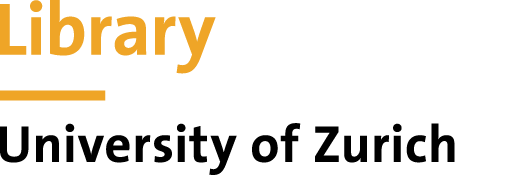
Project to anchor a second publication right in Switzerland
Read this post in
 Deutsch
Deutsch
In Switzerland, there is no legally anchored, indispensable second publication right for authors of scientific journal articles. The project “Zweitveröffentlichungsrecht und Open Access als regulatorische Herausforderung” (Second publication rights and Open Access as a regulatory challenge), funded by swissuniversities, aims to develop proposed solutions for anchoring a second publication right, as it already exists in other European countries, for Swiss law.
Background: Current practice of secondary publication
When researchers publish an article or a book, they are usually required to sign author agreements granting publishers exclusive rights to use their scholarly work. If the authors still want to publish their publications in a research network, on a repository such as ZORA, or on their own website, they may be in violation of the contracts they signed.
Differences in publishing contracts
Author contracts vary from publisher to publisher. Nowadays, most contracts include the concession that journal articles and monographs may be deposited and published on a repository, but only subject to embargo periods [1] and usually only in the form of the so-called “author accepted manuscript” (AAM) [2]. Accordingly, the term “secondary publication” refers to texts that have already been published by a publisher or journal and that are additionally published via an open access repository.
The fact that publishers allowed self-archiving is also due to the institutional publication repositories that emerged in the course of the Open Access movement. In Switzerland, the University of Zurich was one of the first to initiate a repository in 2008 and to encourage its researchers to deposit publications within the framework of the applicable copyright restrictions (for internal use and for archiving purposes) and in accordance with the applicable author contracts.
The pressure on publishers increases
Nationally and internationally, the pressure on publishers to allow secondary publications has also been increased in recent years by requirements from research funders. The Swiss National Science Foundation (SNSF), for example, obliges researchers to publish the results of the projects it funds in freely accessible publication venues. If this is not possible because publication is in a subscription-based venue, researchers have to self-archive their manuscript.
According to the new open access guidelines of the SNSF (applicable to all project proposals submitted after January 1, 2023) the “author accepted manuscript” (AAM) of journal articles must be published immediately in open access and with a CC-BY license [3] on a repository. For books and book chapters, these requirements do not yet apply (see also our blog post of 2.3.2023 on SNF requirements).
Project and project goals
Many European countries have enshrined a secondary publication right in their legal foundations, including e. g. Spain, Germany, the Netherlands and Belgium. Switzerland does not yet have a comparable legal provision.
The aim of the project “Secondary publication rights and Open Access as a regulatory challenge” is to propose solutions for integrating secondary publication rights in Swiss law. To this end, legal specialists from all over Switzerland are working together, including SWITCH, CCdigitallaw, a service offered by the Università della Svizzera italiana [4], and the UB Zurich. The project is led by Prof. Florent Thouvenin of the University of Zurich. The project, which is funded by swissuniversities, will run until fall 2023.
It remains to be seen whether and how implementation can be planned on the basis of the proposed solutions. After all, whether a second publication right can actually be enshrined in law in Switzerland after the project is completed depends above all on the (university) political will to enshrine such a regulation in law for the benefit of science and the public.
Further information
As part of the project, the Competence Center for Digital Law (CCdigitallaw) is conducting three workshops to provide information on existing legal principles at various Swiss universities. In the German-speaking part of Switzerland, the workshop will take place at the University of Zurich on June 12 from 13:30–16:30 in room KOL-H-317. You can register via https://www.ccdigitallaw.ch/training-registration/.
[1] Embargo period refers to the period after which publishers allow authors to republish the full text of the publication. See also open-access.network: Open Access Glossary (accessed on 9.5.2023).
[2] An “author accepted manuscript” is the version of a text that has already been reviewed and accepted for publication, but is not yet available in the publisher’s layout. For the term “postprint” or “author accepted manuscript”, see open-access.network: Open Access Glossary (accessed on 9.5.2023).
[3] In the context of publication, a license is a contract by which rights holders grant rights of use to third parties. Creative Commons licenses are widely established and have become the standard in science and research. See also open-access.network: Open Access Glossary (accessed on 9.5.2023).
[4] See also the website: German | CCdigitallaw (accessed on 9.5.2023).
Andrea Malits, Open Science Services UB

Comments are closed, but trackbacks and pingbacks are open.